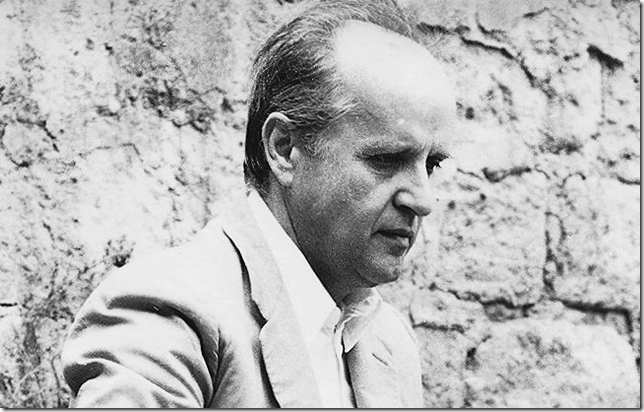Over the years, some of the better Palm Beach Chamber Music Festival concerts have presented a good blend of discovery and tradition.
And so it was with the second concert in the festival’s 21st season this past weekend. The festival musicians sounded well-rehearsed and crisply confident at the Crest Theatre on Sunday, and delivered a fine afternoon of masterworks and obscure but worthwhile pieces that certainly deserve repeated airings.
The concert was bookended by two standard pieces, opening with Schubert’s song Der Hirt auf dem Felsen (D. 965), with mezzo Sonia Santiago, and closing with the String Quintet in G minor (K. 516) of Mozart. In between were two fine 20th-century compositions that showed how durable the chamber music tradition is, and how composers can continually find new ways to say something effective in the medium.
The Trio for flute, violin and piano of the Italian film composer Nino Rota, written in 1958, is a good case in point. Deftly written for its instruments and full of inventive color, the trio also has a gregarious energy that is distinctly appealing. It was well-played by its three performers – flutist Karen Dixon, violinist Dina Kostic and pianist Lisa Leonard.
Kostic and Dixon faced each other on stage while still facing out, and that added to the spirit of forcefulness in the first movement, which begins with big violin triple stops and a cascading, tumbling figure in the piano before the flute enters. The women gave the music a full, meaty sound that contrasted effectively with the tender, almost motionless secondary theme.
Rota builds the second movement out of the same downward chromatic motif that framed the piano opening, but here winds it into a spare, austere dialogue that was carefully and delicately played. The high spirits of the bubbling finale, and the bigness of the sound the players brought to it, helped its closing flourish end like a shout of joy.
The Rota closed the first half of the concert; the second half opened with the Divertimento of the American jazz pianist Mel Powell. This work, for wind quintet, but with a trumpet substituting for the horn, was introduced by trumpeter Marc Reese, who joked in a charming, funny oral program note that he was going to abandon his instrument for a career in rap, which he called, to much audience laughter, “my first love.”
Were that likely or even remotely true, it would be a shame, because Reese played the Powell well, not just in its moments of tricky motif, as in the finale of the four-movement piece, but also as a member of a tight, well-rehearsed ensemble. Powell, who played in Benny Goodman’s band before pursuing a career in classical composition, infuses this 1957 piece with the spirit if not the letter of swing.
Ensemble and blend are important in this work, and the quintet – Dixon, Reese, clarinetist Michael Forte, oboist Sotos Djiovanis and bassoonist Michael Ellert – exhibited crisp control and a mastery of Powell’s quirky idiom. The second movement (Presto) skipped along winningly, and in the finale (Vivo), Dixon added a ferocious piccolo passage that brought a wash of new color to the movement. Unity of purpose and expert playing brought this work the respect it deserves, and the quintet made a fine, compelling case for it.
Sunday’s concert opened with the Schubert song, featuring Santiago, Forte and Leonard.
Santiago read the text of the song beforehand, which was a good idea. She sang well, with a pretty darkness at the bottom of her register, and handled the climbing scales of the third section of the song ably. Leonard accompanied with taste and restraint, letting the soloists speak, and Forte, though somewhat inconsistent in tonal production, played with grace and elegance.
The concert ended with the Mozart quintet, one of the glories of the literature; violinist Mei Mei Luo was joined by Kostic, violists Rene Reder and Rebecca Diderrich, and cellist Susan Bergeron. It started somewhat too tentatively, and with some intonation weaknesses, but that proved to be temporary. This was not a performance with intense feeling overall; it was more reserved than that but didn’t lose much thereby.
Perhaps the first movement could have been a touch more dramatic, and the second more sharply contrasted, not just in the offbeat chords of the minuet theme, but the trio, too. The slow movement was soulful and sweet, and the somber introduction to the finale was suitably mysterious. By the finale proper, all five instruments were sweeping in and out of the cheery rondo, ebbing and swelling in an ideal chamber music union.
As with the Powell, the Mozart bore the signs of good rehearsal, especially on the part of Luo, who has to lead a lot of the musical argument (typically enough for late 18th-century string chamber music writing). All five women did admirably well by this great work, and it was an exemplary way to end the second week of concerts.
The Palm Beach Chamber Music Festival continues Friday, Saturday and Sunday with the Week 3 program, which features Bartok’s Contrasts as well as music by Elgar, Francaix and d’Indy. Concerts are set for 8 p.m. at Persson Hall in West Palm Beach; 8 p.m. Saturday at the Eissey Campus Theatre in Palm Beach Gardens, and 2 p.m. Sunday at the Crest Theatre in Delray Beach. Tickets are $25 per concert, and are available at the door or in advance. To order, call 800-330-6874, or send an email to info@pbcmf.org.
